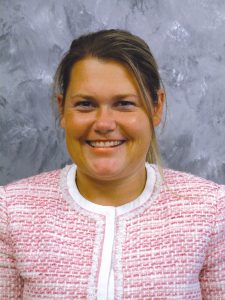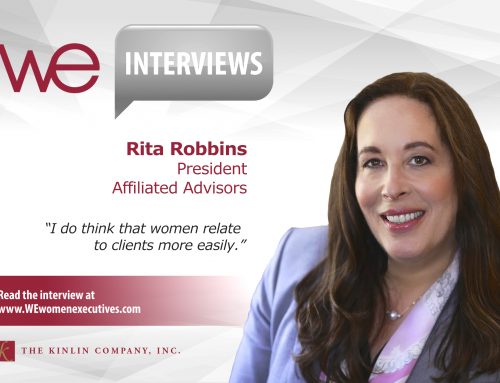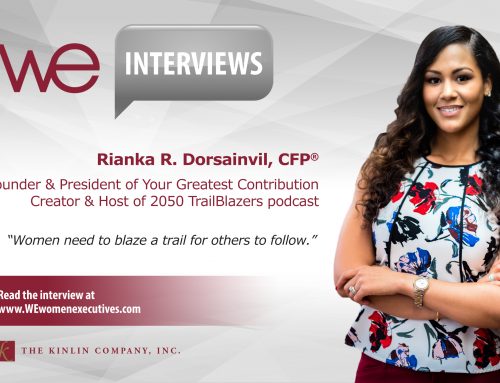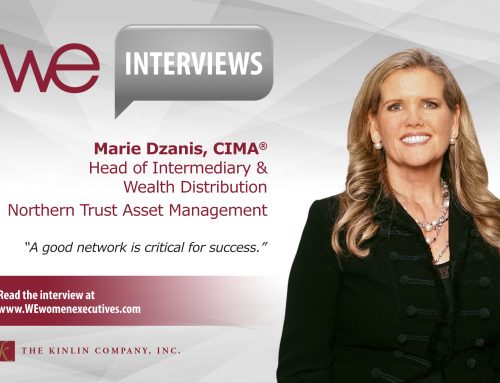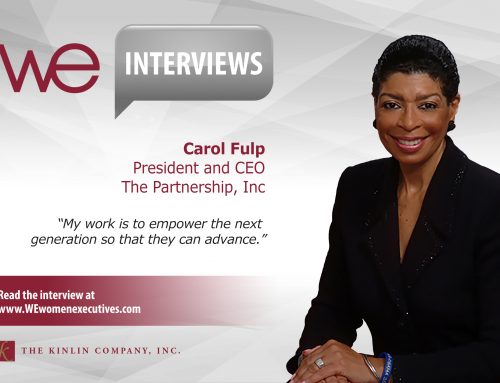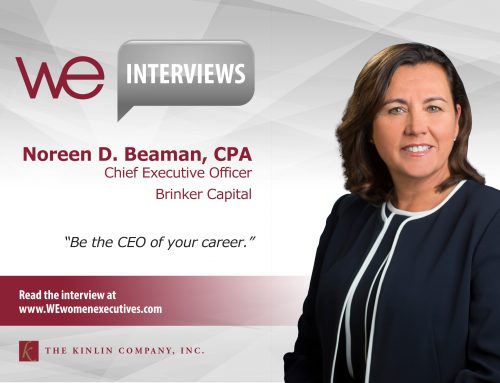Nanette Buziak’s passion for finance developed when she was just a young girl. As a child, her family had a ritual of watching the nightly news over dinner, and Buziak found herself especially drawn to the business news. “I became obsessed with the New York Stock Exchange, and enthralled with the ups and downs of the Dow Jones,” Buziak told me when we sat down to talk at the end of the summer.
Her nascent interest in the financial markets took full bloom when her grandmother left her a $2000 savings bond. Though just a freshman in high school, she was eager to invest her money in the stock market. Her dad was happy to encourage his daughter’s interest.
“He made a deal with me. He said that if I read the Wall Street Journal every day for a month, he would let me start building a portfolio. As the month progressed, he would come home at night and quiz me on what was going on in the markets just to make sure I was keeping up my end of the deal,” she said.
After a month, Buziak’s father allowed her to cash her bonds and invest the money in the portfolio the 14 year old had put together. “That’s where it all started,” Buziak said with a smile.
Twenty plus years later, Buziak is still driven by her passion for the financial markets. Today, she is a Managing Director and Head of Equity Trading for ING Investment Management.
The Importance of Mentors
After graduating from college with a degree in Applied Actuarial Mathematics, Buziak began her career as a financial analyst at Bear Stearns and, after a three and a half years at First Marathon America as a Junior Trader, she then spent eight years as a portfolio manager for JP Morgan Asset Management.
“JP Morgan did a great job of recruiting a lot of women,” Buziak said. Yet, the company had a difficult time retaining its female talent. Buziak discovered that many of her female colleagues were leaving the business in their late 20s or early 30s.
“I was very shocked by the number of women who would resign from their jobs. After the Russian crisis, when our bonuses fell by about 80%, many of the women with children began questioning why they were working so hard to pay a nanny to take care of their kids. So, some of them got their bonuses, quit, and left the industry.”
Buziak credits her mentors with helping her stay committed to her career. She especially singles out Rick Nelson, who was then the Head of U.S. Equity at JP Morgan. “He was, and still is, a phenomenal mentor of mine. Many women at JP Morgan will credit Rick with their success. He has fostered many women in senior roles throughout his career.”
Keep a Cool Head
For Buziak, a good mentor isn’t just a cheerleader, but also the person to tell you when you’re out of line. Rick Nelson played a big role in helping Buziak address her Achilles’ Heel: her temper. Buziak explained, “I have zero patience for people that don’t deliver, and incompetence drives me crazy. Sometimes I would blow up at people if they weren’t prepared or weren’t performing at an acceptable level. Rick was instrumental in reigning me in. He educated me about why my approach wasn’t that effective.”
When Nelson moved from JP Morgan to ING, he asked Buziak to come along with him to run the trading desk. “When Rick was recruiting me over to ING, the one major concern he had was my temper because, as the possible Head of Equity Trading, I would also be managing personnel. I knew I needed to deal with my frustrations more effectively.”
Now, if she feels on the edge of becoming angry, Buziak has some productive cooling-off techniques, like deep breathing or taking a short walk outside.
She believes that it is especially important for women to keep their emotions in check, and to look to your mentors to provide feedback on how you can handle conflict more effectively.
There is More to Life Than Work
Rick Nelson didn’t just encourage Buziak’s career advancement, and give her the constructive feedback to help her be a more effective manager, he also taught her that there is more to life than just hard work.
In 2009, Nelson, who is now the CIO at Commonfund, was let go from ING. “After everything happened,” Buziak remembered, “Rick called me over the weekend. He said, ‘We give everything to work. We work long hours and skip meeting friends for dinner and time with family. And look what can happen anyway.’ His lesson to me was to not forsake my life for my job.”
Though Buziak admits she finds it difficult to unplug from work, she takes Nelson’s advice seriously. “If you called my husband right now, he’d give me an ‘F’ for my work/life balance. But,” she laughs, “I’m always working on it.”
Informal Networking is Crucial
When I asked Buziak if she mentors young women at ING, she said, “I don’t like formal mentoring. To me, it just doesn’t work.” She no longer participates in ING’s mentoring program, but has singled out a couple of young, promising women at the company who she’ll invite to join her team for a drink or to attend an event.
In her experience, informal networking is crucial for career success. “When I was 22, a senior woman told me I should take up golf. I looked at her like she was crazy. I wish I took her advice to heart. Now, at my age, I’m taking golf lessons.”
“If there are networking events that you find yourself excluded from,” she said, “then you have to find a way to be included.”
Buziak continued, “In this male-dominated industry, moving from a line employee or general equity trader to being a manager or a leader of a group can be especially hard for women. This is where relationships can help out. Find your mentors, and build your network. That’s how you can break the barrier to the next level.”

